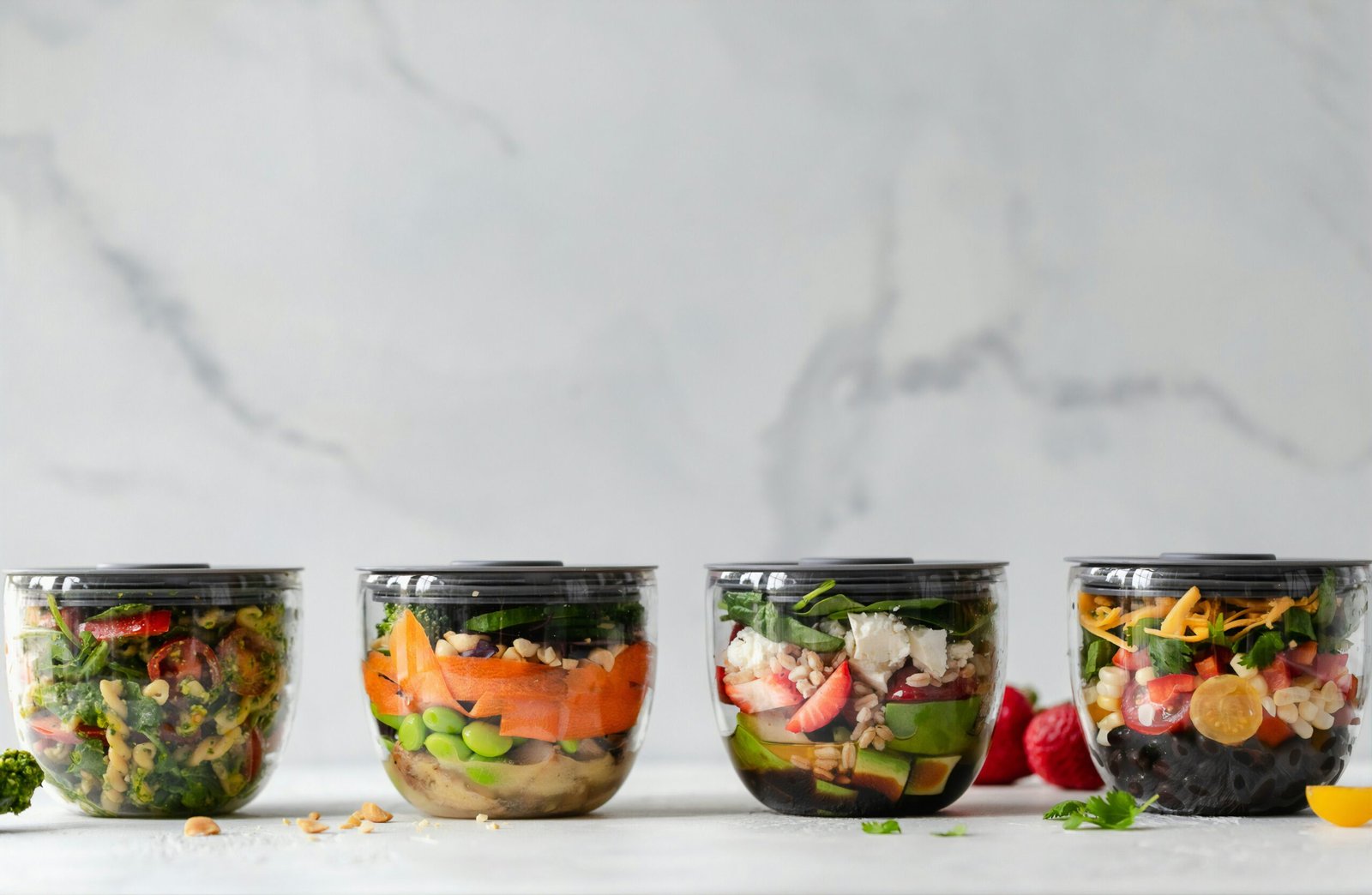Planning Your Meals
When it comes to camping, meal planning is key to maintaining a healthy lifestyle. Before you head out into the wilderness, take some time to plan your meals and make a shopping list. This will ensure that you have all the ingredients you need and can avoid relying on unhealthy processed foods or fast food options.
One strategy for healthy camping meals is to focus on fresh, whole foods. Pack plenty of fruits and vegetables that can be easily stored and prepared. Carrots, bell peppers, and apples are great options that don’t require refrigeration and can be enjoyed as snacks or added to meals.
In addition to fresh produce, consider bringing along lean proteins such as chicken, fish, or tofu. These can be cooked over a campfire or on a portable grill. Don’t forget to bring whole grains like quinoa or whole wheat bread to provide energy and keep you feeling full.
Another tip is to pre-cook some meals at home and pack them in airtight containers. This will save you time and effort at the campsite, allowing you to enjoy more of your outdoor activities. Soups, stews, and chili are excellent options that can be easily reheated over a campfire.
Restful Nights
A good night’s sleep is essential for a successful camping trip. To ensure you get the rest you need, it’s important to create a comfortable sleeping environment. Invest in a high-quality sleeping bag and a camping pad or air mattress to provide cushioning and insulation from the ground.
Additionally, consider bringing earplugs and an eye mask to block out any noise or light that may disrupt your sleep. The sounds of nature can be soothing, but sometimes a nearby camper or wildlife can be a bit too noisy.
To promote relaxation before bed, try incorporating some bedtime rituals into your camping routine. This could include reading a book, practicing gentle stretching or yoga, or enjoying a cup of herbal tea. These activities can help signal to your body that it’s time to wind down and prepare for sleep.
Lastly, be mindful of your caffeine intake. While a cup of coffee or tea can be a comforting part of your camping experience, consuming too much caffeine can interfere with your sleep. Consider limiting your caffeine intake in the afternoon and evening to ensure a restful night’s sleep.
By following these tips and ideas, you can enjoy a healthy and rejuvenating camping experience. So, pack your gear, plan your meals, and get ready to reconnect with nature while taking care of your body and mind.
4. Consider the Weather
When planning for your camping trip, it’s crucial to consider the weather conditions you may encounter. Check the forecast for the duration of your trip and pack accordingly. If you’re expecting rain, make sure to bring waterproof clothing and gear, such as raincoats, waterproof boots, and tarps to cover your tent. On the other hand, if you’re camping in hot weather, pack lightweight, breathable clothing, sunscreen, and hats to protect yourself from the sun’s rays.
5. Create a Camping Checklist
To ensure you don’t forget any essential items, create a camping checklist. This will help you stay organized and make sure you have everything you need. Include items such as a camping stove, cooking utensils, plates, bowls, and cutlery. Don’t forget to pack a first aid kit, insect repellent, and a flashlight for emergencies. Having a checklist will give you peace of mind and help you enjoy your camping trip without any unnecessary stress.
6. Familiarize Yourself with the Campsite
Before you set off on your camping adventure, take some time to familiarize yourself with the campsite. Look for information about the amenities available, such as toilets, showers, and water sources. If there are any restrictions or rules, make sure to abide by them. Knowing the layout of the campsite will help you plan your activities and make the most of your time there.
7. Practice Leave No Trace Principles
As an environmentally-conscious camper, it’s important to practice Leave No Trace principles. This means taking care of the natural surroundings and leaving them as you found them. Dispose of waste properly, including food scraps, and avoid damaging vegetation. Respect wildlife by observing from a distance and not feeding them. By following these principles, you’ll help preserve the beauty of the campsite for future generations to enjoy.
8. Plan for Activities
While camping is a great opportunity to relax and unwind, it’s also a chance to engage in outdoor activities. Plan for activities that suit your interests and the location of your campsite. This could include hiking, fishing, kayaking, or simply exploring the surrounding nature. Research the area beforehand to find out what activities are available and make sure to pack any necessary equipment.
By following these tips and preparing ahead of time, you’ll be well-equipped for a successful and enjoyable camping trip. Remember to be flexible and embrace the adventure, as camping is a wonderful way to connect with nature and create lasting memories.
4. Plan Ahead and Prep Ingredients
When it comes to cooking healthy meals while camping, planning ahead is key. Before you head out, take some time to plan your meals and make a shopping list. Consider the ingredients that are easy to transport and won’t spoil quickly. Opt for fresh produce that can be used in multiple dishes, such as bell peppers, onions, and leafy greens. Prepping ingredients in advance can also save you time and effort at the campsite. Chop vegetables, marinate meat, and pre-cook grains or pasta before you leave. This way, you’ll have everything ready to go and can focus on enjoying your outdoor adventure.
5. Choose Lean Proteins
Protein is an essential part of a healthy diet, especially when you’re camping and need sustained energy. Choose lean proteins that are easy to cook and pack, such as chicken breast, turkey, or tofu. These options are low in fat and high in nutrients, making them ideal for outdoor cooking. You can marinate the proteins before you leave to add flavor and enhance tenderness. If you’re vegetarian or vegan, consider packing canned beans or lentils, which are a great source of protein and can be easily incorporated into various dishes.
6. Experiment with Seasonings and Spices
Just because you’re camping doesn’t mean you have to sacrifice flavor. Experiment with different seasonings and spices to enhance the taste of your meals. Pack a small container with your favorite spices, such as garlic powder, cumin, paprika, or dried herbs. These can be used to add depth and complexity to your dishes. Don’t be afraid to get creative and try new combinations. A sprinkle of cinnamon on roasted sweet potatoes or a dash of chili powder on grilled corn can take your camping meals to the next level.
7. Prioritize Food Safety
When cooking outdoors, it’s important to prioritize food safety to prevent any foodborne illnesses. Keep raw meats separate from other ingredients to avoid cross-contamination. Use a food thermometer to ensure that meats are cooked to a safe internal temperature. Store perishable foods in a cooler with plenty of ice or ice packs to keep them at a safe temperature. Clean utensils and surfaces thoroughly before and after use. And remember to wash your hands with soap and water before handling food.
By following these cooking tips, you can create delicious and healthy meals while enjoying the beauty of nature. So, get ready to impress your fellow campers with your culinary skills and make your camping trip a memorable one.
4. Minimize Disruptions
While camping, it’s important to minimize any disruptions that may interfere with your sleep. One way to do this is by choosing a campsite that is away from high-traffic areas or popular camping spots. This will help reduce noise levels and ensure a more peaceful environment for sleeping.
5. Stay Warm
Temperature fluctuations can greatly affect the quality of your sleep while camping. To ensure a restful night, make sure you are adequately prepared for the weather conditions. Bring appropriate layers of clothing, including warm pajamas and socks, to keep yourself cozy during the night. Additionally, consider using a sleeping bag liner or a thermal blanket for extra insulation.
6. Use Relaxation Techniques
If you find it difficult to unwind and relax before bed, try incorporating some relaxation techniques into your camping routine. Deep breathing exercises, meditation, or gentle stretching can help calm your mind and body, making it easier to fall asleep. You can also try using essential oils, such as lavender, which are known for their calming properties.
7. Keep Your Sleeping Area Clean
Maintaining a clean and organized sleeping area can contribute to a more restful night’s sleep. Before settling down for the night, make sure to remove any debris or sharp objects from your tent or sleeping area. This will help prevent any discomfort or injuries that may disrupt your sleep.
8. Stay Hydrated
Proper hydration is essential for a good night’s sleep, even while camping. Make sure to drink enough water throughout the day to stay hydrated. However, be mindful of your fluid intake before bedtime to avoid frequent trips to the bathroom during the night.
9. Limit Caffeine and Alcohol
While a cup of coffee or a glass of wine may seem tempting while camping, it’s important to remember that caffeine and alcohol can interfere with your sleep. Caffeine is a stimulant that can keep you awake, while alcohol can disrupt your sleep patterns and lead to poor sleep quality. Limit your intake of these substances, especially in the evening, to ensure a restful night.
By following these tips, you can ensure that you have a peaceful and restful night’s sleep while enjoying the great outdoors. Remember, a good night’s sleep is essential for recharging and rejuvenating your body, so you can fully enjoy all the adventures that camping has to offer.


